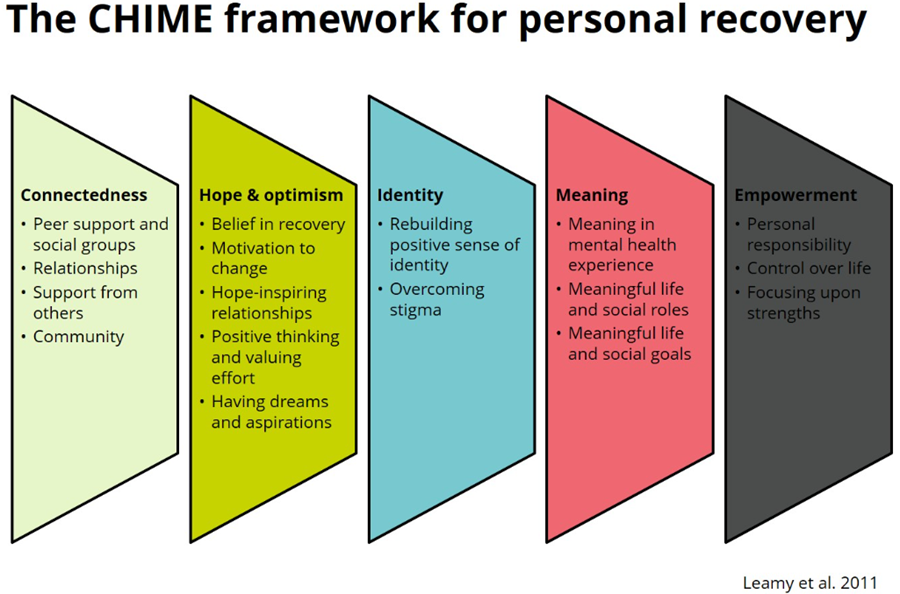A purist or biological approach to mental illness would emphasise symptoms and their negative impacts upon a person’s functioning. Recovery in this medical approach focuses on diagnosis, treatment (medication), ’getting better’, and if not ’cured’, on managing symptoms.
A recovery-oriented model of mental health and mental illness is broader than cure or symptom management, though it does complement a clinical approach. It was borne from a civil rights movement in the 1970s that aimed to restore the human rights and full community inclusion of people with mental illness. This model of recovery became a way for people experiencing mental health difficulties to describe their own experiences and journeys and to affirm their personal identity beyond the constraints of a diagnosis.
Recovery is a process focussed on resilience, hope and living a meaningful life alongside of mental illness. It is a journey intermingled with both achievements and setbacks.
CHIME: A framework for personal recovery
The below diagram provides a personal recovery framework. From the perspective of an individual with mental illness, recovery means gaining and retaining hope, understanding of ones abilities and disabilities, engagement in an active life, personal autonomy, social identity, meaning and purpose in life, and a positive sense of self. These factors enhance and form the base for growth and recovery in the experience of mental illness.

Cited on (Recoveryplace, 2017)
Further reading
To read real life recovery stories, see the Narrative Story Bank on the Scottish Recovery Network’s website.
Price-Robertson et al (2016) state that for practitioners to support healing and recovery in families affected by mental illness, they need to:
- understand that recovery occurs in a family context
- focus on strengthening parent-child relationships
- support families to identify what recovery means for them
- acknowledge and build on family strengths, while recognising vulnerabilities
- assist family members to better understand, and communicate about, mental illness
- link families into their communities and other resources
Understanding personal and family recovery frameworks support our work in child protection. Although child protection practitioners are not responsible for treating mental illness as such, they are responsible for implementing appropriate supports where a child or parent has a mental health concern. The work done to enhance safety and wellbeing also supports mental health and wellbeing for children and families. The inverse is also true, where supporting the mental health and wellbeing of children and families can promote positive outcomes for the children and parents we work with.
Published on:
Last reviewed:
-
Date:
Page created

